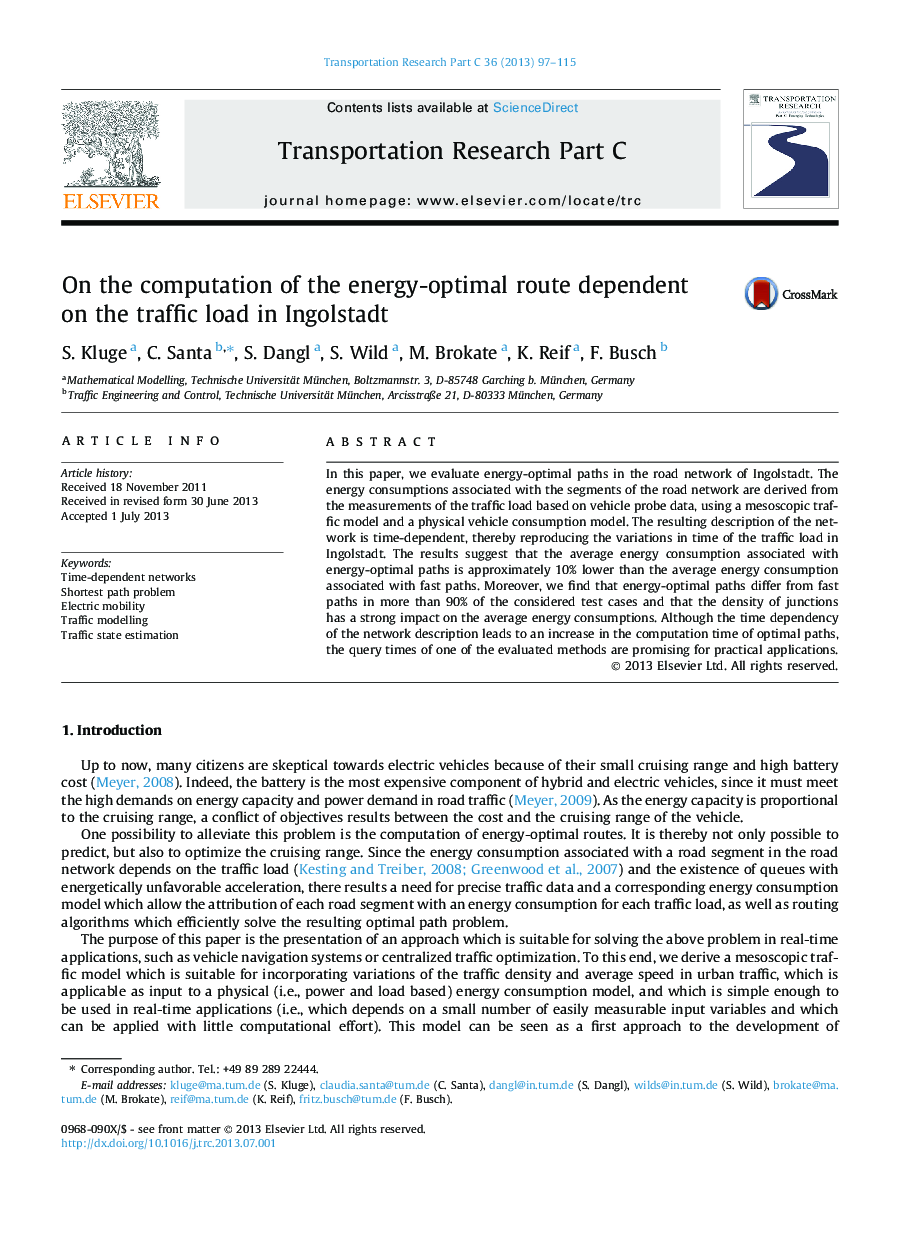| Article ID | Journal | Published Year | Pages | File Type |
|---|---|---|---|---|
| 6937243 | Transportation Research Part C: Emerging Technologies | 2013 | 19 Pages |
Abstract
In this paper, we evaluate energy-optimal paths in the road network of Ingolstadt. The energy consumptions associated with the segments of the road network are derived from the measurements of the traffic load based on vehicle probe data, using a mesoscopic traffic model and a physical vehicle consumption model. The resulting description of the network is time-dependent, thereby reproducing the variations in time of the traffic load in Ingolstadt. The results suggest that the average energy consumption associated with energy-optimal paths is approximately 10% lower than the average energy consumption associated with fast paths. Moreover, we find that energy-optimal paths differ from fast paths in more than 90% of the considered test cases and that the density of junctions has a strong impact on the average energy consumptions. Although the time dependency of the network description leads to an increase in the computation time of optimal paths, the query times of one of the evaluated methods are promising for practical applications.
Keywords
Related Topics
Physical Sciences and Engineering
Computer Science
Computer Science Applications
Authors
S. Kluge, C. Santa, S. Dangl, S. Wild, M. Brokate, K. Reif, F. Busch,
